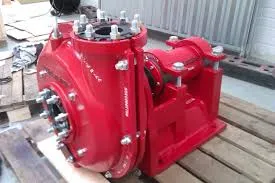English
- Afrikaans
- Albanian
- Amharic
- Arabic
- Armenian
- Azerbaijani
- Basque
- Belarusian
- Bengali
- Bosnian
- Bulgarian
- Catalan
- Cebuano
- Corsican
- Croatian
- Czech
- Danish
- Dutch
- English
- Esperanto
- Estonian
- Finnish
- French
- Frisian
- Galician
- Georgian
- German
- Greek
- Gujarati
- Haitian Creole
- hausa
- hawaiian
- Hebrew
- Hindi
- Miao
- Hungarian
- Icelandic
- igbo
- Indonesian
- irish
- Italian
- Japanese
- Javanese
- Kannada
- kazakh
- Khmer
- Rwandese
- Korean
- Kurdish
- Kyrgyz
- Lao
- Latin
- Latvian
- Lithuanian
- Luxembourgish
- Macedonian
- Malgashi
- Malay
- Malayalam
- Maltese
- Maori
- Marathi
- Mongolian
- Myanmar
- Nepali
- Norwegian
- Norwegian
- Occitan
- Pashto
- Persian
- Polish
- Portuguese
- Punjabi
- Romanian
- Russian
- Samoan
- Scottish Gaelic
- Serbian
- Sesotho
- Shona
- Sindhi
- Sinhala
- Slovak
- Slovenian
- Somali
- Spanish
- Sundanese
- Swahili
- Swedish
- Tagalog
- Tajik
- Tamil
- Tatar
- Telugu
- Thai
- Turkish
- Turkmen
- Ukrainian
- Urdu
- Uighur
- Uzbek
- Vietnamese
- Welsh
- Bantu
- Yiddish
- Yoruba
- Zulu
Telephone: +86 13120555503
Email: frank@cypump.com
Nov . 02, 2024 06:11 Back to list
drinking water transfer pump
The Importance of Drinking Water Transfer Pumps
In an era where access to clean and safe drinking water is paramount, drinking water transfer pumps play a crucial role in ensuring that communities receive this essential resource. These devices are engineered to facilitate the movement of potable water from one location to another, whether that be from a water source to a treatment facility or directly to consumers. This article explores the significance, functionality, and benefits of drinking water transfer pumps.
Understanding Drinking Water Transfer Pumps
Drinking water transfer pumps are specialized devices designed to transport water that meets safety and health regulations for human consumption. Unlike other pumps, these devices are made from materials that do not leach harmful substances into the water, thereby ensuring that the water remains safe throughout the transfer process. They are commonly used in municipal water systems, agricultural settings, and emergencies where clean water needs to be rapidly delivered.
Functionality
The primary function of a drinking water transfer pump is to move water efficiently. These pumps can vary in size, capacity, and power source—ranging from small, portable pumps suitable for home use to larger, industrial pumps designed for municipal systems. Most drinking water transfer pumps use centrifugal force, which means they convert rotational kinetic energy into hydrodynamic energy, allowing them to move water effectively through pipes, hoses, and other systems.
Operation of drinking water transfer pumps is usually straightforward, involving a motor that powers an impeller
. As the impeller spins, it creates a pressure difference that pulls water into the pump and then pushes it out reliably. Additionally, modern pumps often include features such as flow meters, pressure gauges, and automatic shut-off mechanisms that enhance their efficiency and safety.drinking water transfer pump

Benefits of Drinking Water Transfer Pumps
1. Improved Access to Clean Water One of the most significant benefits of drinking water transfer pumps is their ability to improve access to clean water. In many remote or underserved areas, these pumps are invaluable for transporting water from supply points to homes, schools, and healthcare facilities.
2. Rapid Response in Emergencies During natural disasters or environmental crises, the ability to quickly transport drinking water can save lives. Emergency services can deploy these pumps to ensure that affected populations receive immediate access to safe water, thereby preventing waterborne diseases.
3. Sustainable Water Management Many drinking water transfer pumps are energy-efficient, reducing the environmental impact associated with water transportation. By using solar or wind energy-powered pumps, communities can minimize their carbon footprint while ensuring a steady supply of clean water.
4. Scalability Drinking water transfer pumps can be scaled for various applications, from small rural communities to large urban areas. This versatility means that as a community grows, its water distribution system can expand accordingly without significant overhauls.
Conclusion
In summary, drinking water transfer pumps are essential tools in the quest for universal access to clean drinking water. They provide a reliable and efficient means of transporting water, particularly in times of need. As technology advances, these pumps will continue to evolve, offering even greater efficiency and sustainability, ensuring that the most fundamental human need—access to safe drinking water—is met for generations to come.
-
ISG Series Vertical Pipeline Pump - Chi Yuan Pumps Co., LTD.|Advanced Hydraulic Design&Energy-Efficient Solutions
NewsJul.30,2025
-
ISG Series Vertical Pipeline Pump - Chi Yuan Pumps Co., LTD.
NewsJul.30,2025
-
ISG Series Vertical Pipeline Pump - Chi Yuan Pumps Co., LTD.|energy-efficient fluid handling&industrial durability
NewsJul.30,2025
-
ISG Series Vertical Pipeline Pump - Chi Yuan Pumps | Advanced Engineering&Industrial Efficiency
NewsJul.30,2025
-
ISG Series Pipeline Pump - Chi Yuan Pumps | High Efficiency, Energy Saving
NewsJul.30,2025
-
ISG Series Vertical Pipeline Pump-Chi Yuan Pumps|High Efficiency&Reliable Performance
NewsJul.29,2025










